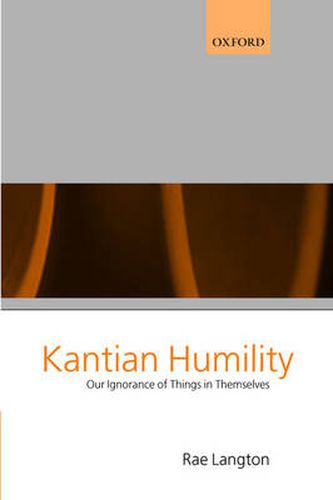Readings Newsletter
Become a Readings Member to make your shopping experience even easier.
Sign in or sign up for free!
You’re not far away from qualifying for FREE standard shipping within Australia
You’ve qualified for FREE standard shipping within Australia
The cart is loading…






Rae Langton offers a new interpretation and defence of Kant’s doctrine of things in themselves. Kant distinguishes things in themselves from phenomena, and in so doing he makes a metaphysical distinction between intrinsic and relational properties of substances. Kant says that phenomena–things as we know them–consist ‘entirely of relations’. His claim that we have no knowledge of things in themselves is not idealism, but epistemic humility: we have no knowledge of the intrinsic properties of substances. This humility has its roots in some plausible philosophical beliefs: an empiricist belief in the receptivity of human knowledge and a metaphysical belief in the irreducibility of relational properties. Langton’s interpretation vindicates Kant’s scientific realism, and shows his primary/secondary quality distinction to be superior even to modern-day competitors. And it answers the famous charge that Kant’s tale of things in themselves is one that makes itself untellable.
$9.00 standard shipping within Australia
FREE standard shipping within Australia for orders over $100.00
Express & International shipping calculated at checkout
Rae Langton offers a new interpretation and defence of Kant’s doctrine of things in themselves. Kant distinguishes things in themselves from phenomena, and in so doing he makes a metaphysical distinction between intrinsic and relational properties of substances. Kant says that phenomena–things as we know them–consist ‘entirely of relations’. His claim that we have no knowledge of things in themselves is not idealism, but epistemic humility: we have no knowledge of the intrinsic properties of substances. This humility has its roots in some plausible philosophical beliefs: an empiricist belief in the receptivity of human knowledge and a metaphysical belief in the irreducibility of relational properties. Langton’s interpretation vindicates Kant’s scientific realism, and shows his primary/secondary quality distinction to be superior even to modern-day competitors. And it answers the famous charge that Kant’s tale of things in themselves is one that makes itself untellable.